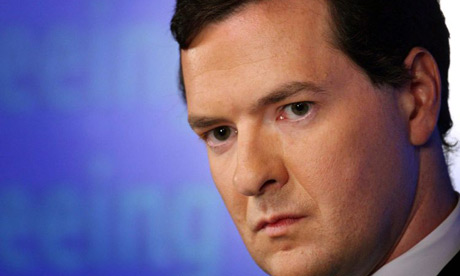Regular readers will know that I agree with his views. Do you?
Lynton starts by stating:

"I'm not a quitter. I have never run away from a fight of any sort. However when it comes to tax avoidance schemes, the anti-avoidance legislation is no so onerous (and the interpretation of that legislation by the courts seems so weighted against the taxpayer) that the days of artificial tax schemes succeeding seem to be over."Lynton goes on to refer to the Disclosure of Tax Avoidance Schemes (DOTAS) legislation - which we now know is to be tightened even further. By way of example he recalls reading Counsel's opinion about a tax scheme where it seemed certain that the taxpayer was bound to win a case going through the Courts. In the event however, not for the first time in such circumstances, the Revenue won.
"Then there is the case of Drummond v HMRC. This related to a tax avoidance scheme in which an artificial capital loss was claimed. Again, some of the largest accountancy firms were promoting this scheme and the tax opinions that I read would have made you think it was game, set and match to the taxpayer before the first ball was struck. Again the taxpayer lost all the way to the Court of Appeal."Next Lynton highlights the Government's willingness to introduce retrospective tax legislation to counter tax avoidance schemes.
He also reluctantly accepts that "tax schemes are here to stay" and references the new 50% income tax rate and clients' requirement for what, is inevitably, "more and more aggressive" tax planning. By way of example he quotes a typical conversation:
Client: "I want to save tax and I want you to come up with a tax scheme to help me"Lynton concludes by suggesting that:
Adviser: "In all honesty, from my experience, the tax schemes I have seen don't work. They are expensive, there are no guarantees as to success and you will have no certainty for many years in view of HMRC's stated policy that they are willing to litigate."
Client: "If you can't help me - I'll go to somewhere else to someone who can."
"The real problem, however, is that when the dust actually settles and the tax scheme undoubtedly fails, it really doesn't help to say to your irate client: 'I told you so'."When I was in practice I was conscious of three further related problems:
- The accountant wants to charge fees for his related time commitment. This starts with discussing the idea with the client and includes trying to ensure that the client's eyes are fully open. Clients do not however take kindly to being charged fees for their accountant discouraging them from trying to save tax! I developed such a talent for this that it contributed to my decision to stop giving tax advice myself!
- Assuming the client goes ahead anyway the accountant has further time costs related to his involvement - however peripherally - in reporting the transactions on the client's tax return and for liaising with the promoters. However the client is only inclined to pay the latter for their advice and intellectual property re the scheme. And a hefty fee that is too (a substantial proportion of the tax saved/avoided). The client is not inclined to pay his adviser for anything related to this especially as he was not supportive of the client's involvement.
- The relationship with the client will invariably worsen as the promoter's approach differs from that of the accountant. This will start by reference to their alleged naivety and inability to understand why the scheme is the best thing since sliced bread. It will continue if there is any disagreement as to how the scheme transactions and additional information are disclosed on the client's tax return. And eventually it will spill over into frustration when preparing the client for a Tribunal hearing and any subsequent court case.
Previous relevant posts:
- Give me pure tax evasion any day
- Discovery assessments issued re film schemes in 2003-04
- HMRC challenge sideways loss relief tax avoidance
- HMRC confuse tax avoidance and tax evasion again
- Beware of HMRC spotlights - EBTs now included
- Were you wasting time advocating this tax scheme?
- The beginning of the end for structured tax avoidance schemes?
- Bending vs breaking tax rules






